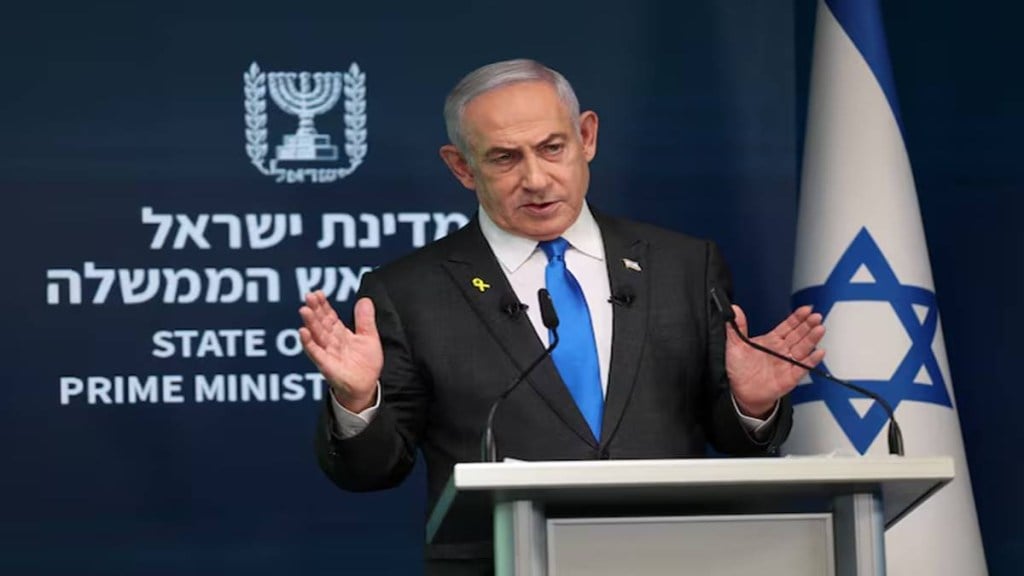As Donald Trump’s inauguration as the President of United States on January 20 approaches, the prospect of a ceasefire between Israel and Hamas appears to be gaining momentum, with critical negotiations underway. The central issue remains the release of hostages still in Hamas’ custody, with the looming threat of escalated military action if the situation is not resolved by the time Trump is sworn in.
High-Stakes Talks in Qatar
Israeli intelligence chiefs have traveled to Doha, Qatar, where ongoing talks are taking place between Israel and Hamas representatives. Mossad Director David Barnea and Shin Bet Chief Ronen Bar are at the center of these negotiations, engaging with Hamas intermediaries to hash out terms for a ceasefire and a possible hostage release agreement. Qatar, known for its diplomatic influence in the region, is playing a key role in facilitating these discussions, with Egyptian mediation also expected to seal any final deal.
This latest round of negotiations comes after months of failed attempts to secure a ceasefire, with multiple rounds of talks collapsing over disagreements on terms. However, the growing pressure—both from within Israel and internationally—may be pushing the sides closer to an agreement.
The Urgent Deadline: January 20
The looming deadline for a potential breakthrough is particularly significant: Israel’s Prime Minister, Benjamin Netanyahu, faces increasing public pressure amid violent protests calling for the release of hostages, some of whom have been held by Hamas for months. A disturbing video recently emerged showing a 19-year-old Israeli female soldier pleading for her freedom, further intensifying calls for action.
Netanyahu’s government is also under scrutiny due to the emergence of two additional bodies of hostages recovered by the Israeli Defense Forces (IDF). The specter of these videos, combined with the growing unrest, has only fueled demands for Israel to secure the hostages’ release before Trump’s inauguration.
Trump, in a statement last week, issued a stern warning to Hamas. “If they don’t release the hostages before January 20, they will face doom,” he said, adding that a failure to act would bring about a disastrous outcome for Hamas and destabilize the broader Middle East. His tough rhetoric underscores the sense of urgency surrounding these talks.
Israeli Military Readiness
The Israeli Defense Minister, Israel Katz, has not hidden his government’s contingency plans in the event that the hostage crisis remains unresolved. Katz has instructed the IDF to prepare for a military response that could decisively defeat Hamas if an agreement is not reached by January 20. “If the hostages are not released, we will take a different decision,” Katz stated, signaling that Israel is ready to escalate the conflict to ensure the safe return of its citizens.
Katz’s comments also alluded to plans for Gaza’s future, asserting that no international body or Arab institution would be allowed to manage Gaza’s reconstruction until Hamas was completely neutralized.
A Fragile Hope for a Breakthrough
While the negotiations have yet to result in a definitive agreement, optimism remains among certain diplomats. U.S. special envoy Steven Charles Witkoff, recently returned from the region, expressed confidence that the talks were nearing a resolution. “I believe we are on the verge of it,” Witkoff remarked, noting that the pressure from both U.S. officials and Israel’s red lines have been pivotal in pushing the dialogue forward.
However, the complexity of the situation means that the final steps toward a ceasefire could easily collapse once again. Previous negotiations have faltered over issues such as the conditions for the hostages’ release, the scope of a ceasefire, and the future role of Hamas in Gaza’s governance.
A Narrow Window for Resolution
With just days remaining until Trump’s inauguration, the possibility of a ceasefire between Israel and Hamas hinges on the success of delicate talks underway in Doha. While both sides have a strong incentive to reach an agreement—Israel to end the crisis and avoid further domestic unrest, and Hamas to avoid the full force of Israeli military action—the situation remains fraught with uncertainty. Whether a deal can be finalized before January 20 remains to be seen, but time is rapidly running out.

